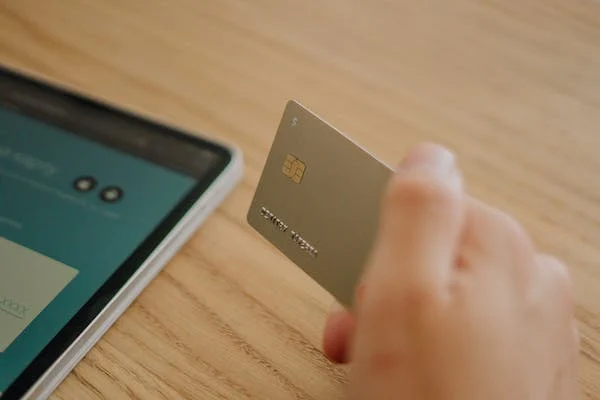Last Updated on May 24, 2024 by Daniele Lima
Learn more about credit card myths and know how to use them
Credit card is undoubtedly a very useful payment method, used by many people. If it is well used, it becomes a benefit for the user, but if it is misused, it can become a very serious problem.
In Brazil, defaults on credit card debts are still in first place, according to data from the Serasa no site g1.
This ends up happening due to the lack of knowledge of users, who are not well aware of the risks and benefits of using a credit card.
In this article, we discuss six common myths about credit cards that you need to be aware of.
Table of Contents
Myth 1: Having too many cards affects your credit score
Many people believe that having too many credit cards can hurt your score.
In fact, the number of cards you have does not directly affect your score. What really counts is how you use your cards. If you have a lot of credit cards and use them all regularly, it may be more difficult to control your expenses and consequently manage your budget, that is, this is where the danger lies. However, if you use all your cards wisely and pay your bills on time, having too many credit cards won’t hurt your score at all.
Myth 2: Maintaining a credit card balance to improve your score

This myth is completely false. In fact, carrying your credit card balance can hurt your score. The purpose of using a credit card is to pay for your purchases and then pay the bill in full before the due date. This shows that you are a responsible credit user and can go a long way towards improving your score.
If you don’t pay your bill in full, try to pay as much as you can and then make additional payments until the debt is paid off in full. This attitude will help minimize the interest you pay and improve your credit score at the same time.
Myth 3: Choosing the maximum credit limit
Some people believe that choosing a card with a maximum credit limit is the best option. This is yet another myth that should be banished, as a high credit limit can be attractive, but it can also lead to overspending and debt problems.
A high limit can also cause credit card companies to raise your fees and interest.
Instead, choose a line of credit that fits your budget and you can pay off in full each month. So you avoid the dreaded temptation to spend more than you can and keep your finances under control.
Myth 4: Pay only the minimum payment per month

This is a more than common error among credit card users. That false feeling of “duty accomplished”, actually only contributes to a cumulative “snowball” effect. Many believe that they only need to pay the minimum card bill payment per month. However, this can lead to increased debt and additional interest, which add up quickly.
By making only the minimum payment, you pay interest on the remaining balance. This means that even if you don’t use your credit card, you will still pay interest on your next bill. Therefore, do your best to pay your invoice in full, or at least an amount above the minimum payment, to avoid further problems in the future.
The more you pay, the less interest accrues, and the faster your debt is paid off. Also, paying your bill in full every month is the best way to keep your credit score healthy.
Myth 5: You don’t need to keep an eye on your card statement
This myth catches many people who are poorly educated and confident that the only risk of a card bill is not paying it. Some people believe that once they get their credit card bill they can just pay the full amount and move on.
However, it is important to carefully review your credit card statement to ensure that all transactions are correct and that there are no fraudulent charges or billing errors.
Carefully reviewing your invoice can help you identify suspicious or fraudulent charges and take immediate action to correct the problem.
Also, getting into the habit of checking your bill will help you spot billing errors or discrepancies or correct them before your situation gets complicated.
Myth 6: Choosing a card with a lower interest rate
On the surface, it seems tempting to choose a credit card with a lower interest rate, but it is not always the best choice,
Other factors also count a lot, such as the absence of annuity, accrual of miles, etc.
It may happen that a card with higher interest rates offers you many benefits and perks that will offset the amount spent on fees.
It is therefore very important to analyze the pros and cons to choose the credit card that best suits your financial needs and lifestyle.
Conclusion:
Finally, knowing how to use a credit card, knowing its risks and advantages, and demystifying false information, are essential precautions that you must take, so that your credit card is not a bad thing in your financial life.
Many times, we believe that we are doing the right thing, due to lack of information.
When it comes to credit cards, it is no different, because in many cases you learn by making mistakes, but learning to prevent problems with interest and fees is much better and more advantageous.
Credit Card Myths – FAQ:
What are some of the common marketing tactics credit card companies use to market to young adults?
Most credit card companies use a variety of tactics to attract young people. They offer attractive rewards such as cash back, travel points, or discounts on popular brands. These programs are designed to support young people’s lifestyles and spending habits. The company is also targeting this demographic with lower entry fees and subscription fees to make the cards more attractive. Marketing campaigns are often done through social media and school events to reach users of this technology directly. Additionally, companies will debunk “credit card myths,” educate young people about the benefits and controls of owning a credit card, and emphasize the importance of building credit early.
With a debit card, you can do everything you can do with a credit card except what?
You can shop, withdraw cash, and make payments with a debit card, just like a credit card. However, you cannot use a debit card to borrow money or establish a credit history. Unlike a credit card, which allows you to buy on credit and pay for it later, a debit card only allows you to use the money you have in your bank account. This means you’re missing out on a credit-building opportunity that’s important for a future loan or loan. Credit card myths often suggest that credit cards are risky, but they are crucial to building your credit score.
Which item is important to consider when selecting a credit card?
When choosing a credit card, you should carefully consider the interest rate, commonly known as the annual percentage rate (APR). Choosing a lower APR can be beneficial, especially if you’re managing the monthly balance. It’s also important to monitor your rewards program to make sure it aligns with your spending patterns and to determine if there are any associated costs, such as annual fees or late fees. It is also important to evaluate credit limits carefully and be clear about terms and conditions. A good understanding of these important concepts can help you eliminate credit card misconceptions and determine which credit card is best for your financial needs.
Why do you think banks will try to sell you credit cards or personal loans?
Banks try to sell you credit cards or personal loans because they are profitable products. Credit cards generate income from interest, annual fees, and merchant fees. Personal loans also generate income from interest and fees. These products can also help banks build long-term customer relationships, as the management of credit cards or loans can be done for other banking products, such as loans or investment services. Additionally, credit cards help debunk credit card myths by offering benefits and rewards that encourage customer loyalty and increase spending.










Leave a Reply